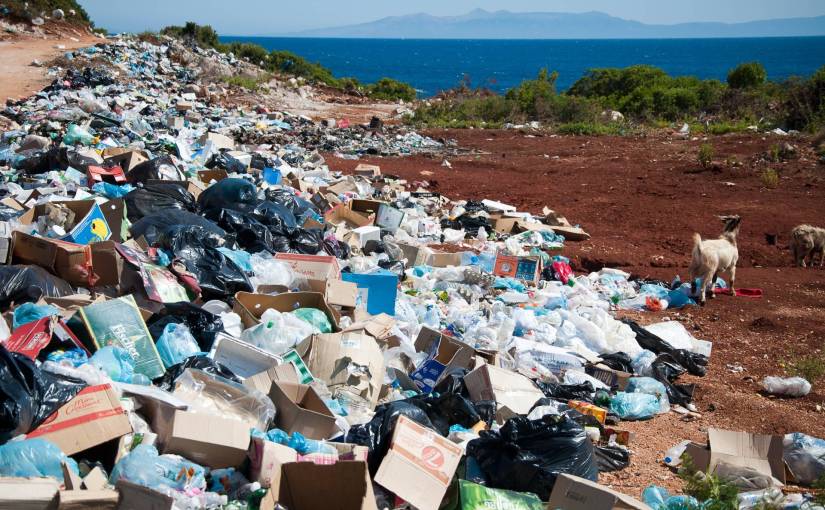Waste plastic has become a significant problem worldwide, harming ecosystems through littering and other forms of pollution. Researchers at the University of Washington (UW) have developed a bioplastic that breaks down as rapidly as a banana peel, so hope is on the horizon. This novel material, derived from algae, degrades naturally and provides a number of other advantages that make it an appealing replacement for petroleum-based plastics. In this article, we’ll delve into the history of this bioplastic’s creation, its potential uses, and the obstacles that still need to be overcome.
From abandoned bottles and bags to beach litter, plastic waste has become an ever-present problem in our world. Traditional plastics derived from fossil fuels tend to last a long time, contributing to a worldwide plastic pollution crisis. Researchers are actively looking for solutions to the problem of plastic waste as concerns about its effects on the planet increase.
As an alternative to petroleum-based plastics, bioplastics show great promise. These plastics are better for the environment because they are derived from naturally replenishing resources like plants or algae. UW researchers have developed one such bioplastic, which could be used to address the issue of plastic pollution.
The blue-green algae, Spirulina, can be grown in relatively simple conditions
Spirulina is a type of blue-green algae that can be grown in relatively simple conditions, and a team of researchers at the University of Washington led by Dr. Eleftheria Roumeli has developed a bioplastic from this algae. The Spirulina algae is frequently found in food and dietary supplement formulations. Spirulina is a carbon dioxide (CO2) sequestering bioplastic because its growth consumes atmospheric CO2.
The bioplastic developed by UW scientists is noteworthy because of several important qualities. It’s a greener option than regular plastic because it can be recycled easily. The material is also fireproof, meaning it will char and extinguish itself if exposed to flames. In addition, the bioplastic can be machined and may be sufficiently robust for use in long-lasting products like furniture.
Several groups have expressed interest in and supported the UW’s bioplastic project because of its promising potential. The material and its ecological benefits captivated Microsoft principal researcher Bichlien Nguyen. Microsoft’s Climate Research Initiative grants supported the lab’s work. By working together, researchers and innovators in the field of climate technology hope to speed up the process of developing and perfecting new climate-friendly materials.
The creation of this bioplastic paves the way for its widespread use in various sectors.
Microsoft, dedicated to environmental protection, foresees using the bioplastic in their cloud data centers for things like computer cases and server racks. The material’s fire resistance and ability to be recycled make it a good fit for this type of use. In addition, the bioplastic may be used in a variety of products, from home furnishings to food containers.
The bioplastic research conducted by Dr. Roumeli has been published in the peer-reviewed scientific journal Advanced Functional Materials. The publication included work from Bichlien Nguyen, an assistant professor in the UW’s Department of Computer Science and Engineering. Working together across disciplines is crucial to fostering innovation and identifying long-term fixes, as demonstrated by this partnership between academia and industry.
Meta donated $150,000 to the UW lab
In addition to Microsoft’s funding, tech giant Meta donated $150,000 to the UW lab, showcasing the increasing interest in green materials for electronics. To accelerate development and expedite the commercialization of these innovations, the participation of industry leaders in supporting research and development is essential.
The bioplastic developed at UW has a lot of potential, but there are still a lot of obstacles to get in the way of commercializing it. The material’s poor resistance to moisture is a significant drawback. Because solving this issue is crucial to expanding the use of bioplastic, Dr. Roumeli and her team are hard at work on it. Once this barrier is cleared, it should be easy to ramp up production of the algal-based material by reusing the infrastructure currently used to make plastic.
Ways to mitigate the environmental damage
Given the industry’s long history of producing high-performing plastics from fossil fuels, Dr. Roumeli concedes that transforming them is difficult. She thinks her bioplastic is one way to mitigate the environmental damage caused by trashed plastic bottles and cans. Finding comprehensive solutions to the plastic pollution crisis will require collaboration between academia, industry, and organizations like the Seattle Aquarium, which recently researched bioplastics safe for the marine environment.
In conclusion, the fight against plastic pollution has significantly progressed with the development of a bioplastic that decomposes as quickly as a banana peel. The algae used by UW researchers is a sustainable and eco-friendly replacement for petroleum-based plastics. While there are still obstacles to overcome, partnerships between academic institutions, businesses, and environmental groups are paving the way for a future in which bioplastics significantly reduce our reliance on plastics made from fossil fuels.
First reported on GeekWire
Frequently Asked Questions
Q. What bioplastic was developed by the University of Washington (UW) researchers?
The bioplastic developed by UW researchers is derived from spirulina, a type of blue-green algae. This eco-friendly material is a sustainable alternative to traditional petroleum-based plastics and decomposes as quickly as a banana peel.
Q. What are some of the key qualities of the UW bioplastic?
The UW bioplastic is a greener option as it can be easily recycled and is fireproof, extinguishing itself if exposed to flames. It can be machined and has the potential for use in long-lasting products like furniture.
Q. How has the tech industry shown interest and support for the UW bioplastic project?
Tech giants like Microsoft and Meta have expressed interest in and funded the UW bioplastic project. Microsoft foresees using the bioplastic in their cloud data centers for computer cases and server racks, leveraging its fire resistance and recyclability.
Q. What are some of the challenges UW bioplastic faces in its commercialization?
One major obstacle is the material’s poor resistance to moisture. The research team at UW is actively working to address this issue to expand the use of bioplastics.
Q. How does the development of UW bioplastic contribute to the fight against plastic pollution?
The development of bioplastics from sustainable algae offers an eco-friendly replacement for petroleum-based plastics, helping to reduce our reliance on plastics made from fossil fuels. Collaborations between academic institutions, businesses, and environmental groups pave the way for a more sustainable future, with bioplastics significantly addressing plastic pollution.
Featured Image Credit: Antonine Giret; Unsplash; Thank you!


















